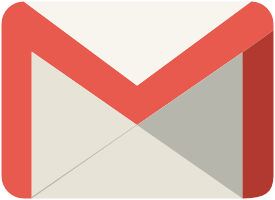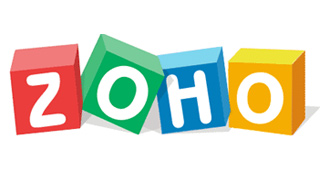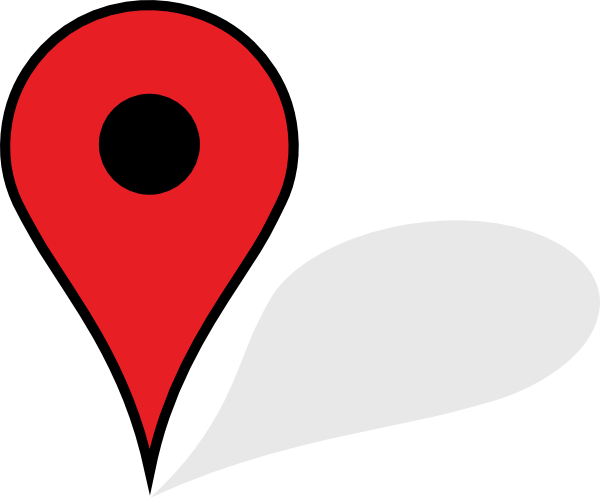I don’t know how it started. Maybe it was the clause in Google’s terms and conditions that gives them near ownership of the content you upload to Google Drive or those creepy targeted ads that follow you from one site to another, but a few months ago I went on a privacy kick.
In the past, I was one of the chorus who said, “I don’t have anything to hide, so… so what?” As advertisers and tech companies show more of their hand and expose how much they really know and profit from us, I realized I was giving them more value than their “free” services were returning to me.
As in any relationship, when you feel you’re giving more than you’re getting, it makes you feel like a bit of a fool.
So a month ago I started researching alternatives to Google’s products. For the most part, I’m Google-free. Here’s how I did it:
Google Search
(Alternative: DuckDuckGo)
 vs
vs 
This is the toughie. Google Search is a powerful, predictive solution. It literally completes your thoughts for you as you type them. It does that by learning from you as you search and custom baking results just for you. When you leave Google Search, it’s like losing that best friend who you don’t have to explain things to. They already know the story, your background, your quirks.
When I switched over to DuckDuckGo – a privacy obsessed alternative to Google Search – I had to start from scratch again. When I searched for something like “smoothie bar plymouth,” DuckDuckGo made its best guess and figured I was more likely to be looking for a smoothie in Plymouth, MA than Plymouth, MI. Granted, while Maui Wowi on Water Street in Plymouth, MA looks awesome, it isn’t going to satisfy my random, cold liquified fruit cravings.
So, I have to work a little harder with DuckDuckGo and write complete queries that include the exact location or extra keywords. It reminded me that I used to work that hard before Google became so smart. I did it before; I can do it again.
Google Mail
(Alternative: Zoho Mail + my own domain from GoDaddy)
 vs
vs  +
+ 
Of all of Google’s products, I thought Gmail was going to be the hardest to leave. It turned out to be the easiest.
Zoho Mail is a slick alternative to Gmail. It’s interface – although not as fancy as Google’s – is just as functional. In fact, I like it better than Gmail after a month of use.
While I do miss the way Gmail displays previous conversations, I love how Zoho opens new e-mails in their own tab and allows me to open multiple e-mails at once and then bounce between tabs. It’s easier than the disconnection you feel as you open one e-mail and then have to close it entirely to switch back to a draft you were writing.
Zoho gives me Mail, Calendar, and Contacts (along with ActiveSync so it plays well with my phone) for only $2/month (10GB of storage). They migrated my nearly 10 years of Gmail e-mails with ease, so I didn’t lose any of my e-mail history. I’m an e-mail pack rat. I admit it.
While you can get a @zoho.com address, I already had a domain ($8/year) purchased through GoDaddy. I followed Zoho’s how-to guides and had GoDaddy routing incoming mgrabowski.com e-mails to Zoho’s servers in less than 30 minutes.
I’m so satisfied that I cannot imagine returning to Gmail again.
Google Maps
(Alternative: None)

I tried. I really tried. Waze. Scout. Even MapQuest. Google Maps has maps down cold.
This is mainly due to their great directory of businesses and attractions. A few weeks ago I was out at the Nichols Arboretum in Ann Arbor with a friend. She was pretty sure how to get there, but I tried my alternative map apps as a backup, just in case.
Only Google Maps and Waze (admitedly, owned by Google) had any idea what or where the Nichols Arboretum might be. MapQuest suggested that I might want to navigate to Arboretum in Kwazulu Natal, South Africa. When I asked it for a route and time estimate, it apologized and said it couldn’t figure that out. This frustrated me even more than the suggestion that I navigate to South Africa because now I really wanted to know how long it would take to journey by ferry, car, and foot to the southern tip of Africa.
Google Maps returns enough value to me for the location information I share with them. I’ll stick with it until the alternatives get better.
Google Chrome
(Alternative: Dolphin for mobile, Mozilla Firefox for desktop)
 vs
vs  vs
vs 
I’m struggling to replace Chrome. Firefox on the desktop feels slower than Chrome and it likes to crash on me (both probably due to a few buggy plugins). Dolphin is fine on mobile, but I miss the sync functionality of Chrome that allowed my bookmarks to live across multiple platforms (except iOS).
I’m still working on this one, but I think I’m going to ditch Dolphin for Firefox mobile. If only Firefox had an iOS app, but given iOS’ design, Mozilla says it has no plans to deliver an app.
Google Drive
(Alternative: Dropbox)
 vs
vs 
I know I could take some privacy flack for this one given concerns about Dropbox’s security and the appointment of Condolezza Rice to their board of directors earlier this year.
After reading their terms and conditions, I’m ok with using Dropbox for right now. Dropbox doesn’t claim any rights to use my content, whereas Google says:
When you upload, submit, store, send or receive content to or through our Services, you give Google (and those we work with) a worldwide license to use, host, store, reproduce, modify, create derivative works (such as those resulting from translations, adaptations or other changes we make so that your content works better with our Services), communicate, publish, publicly perform, publicly display and distribute such content. (as of 07/03/2014)
That line just creeps me out.
Google Play Music
(Alternative: None)

For those who love music and haven’t tried Google Play Music, you are missing out. Google Play Music allows you to upload your entire MP3 collection to the cloud (well, technically only 20,000 songs) and then stream your music to any desktop or Android device. Your whole music collection follows you, in your car, in the park, at the coffee shop, and you can even download offline copies of your songs so you can listen without a data connection.
Like Maps, the design and incomparable functions of Google Play Music makes me willing to volunteer my personal information in exchange for the free service. Somewhere they are building a lucrative advertising profile for 30-something-year-olds who live in Southeastern Michigan, search for snowboarding and rock climbing videos on YouTube, and have excellent musical taste. I can live with that.
Conclusion
It’s not easy to give up on the convenience of Google. They make great products that can become an integral part of your digital life.
But you have to ask yourself a simple question: Am I getting a fair shake for what I give X company?
The film Terms and Conditions May Apply (available on Netflix streaming) estimates that Google makes about $500/year from monetizing your personal data. Their services can be pretty awesome, but I don’t feel they are worth $500 to me.
As I moved away from Google, I was reminded of how the internet felt before Google, Facebook, and Amazon captured their respective corners of the internet. We used to string together various applications and different companies to meet our needs. My e-mail used to be stored on local servers at my ISP. My web searches entailed visiting Lycos, Altavista and Yahoo! to find the best results. I would go directly to CDNow and then Amazon to compare prices.
The know the idea of using multiple search engines for a single search result seems insane nowadays and it is. Although I wouldn’t go back to those days, I do ask myself whether convenience is worth giving most of my business or personal data to one company. Is that really the best thing for our economy and the internet? It’s not.
If we all sign up for Google or become Amazon Prime customers, what happens to that small start-up that has a cool service, but doesn’t have the war chest to compete with the big guys? The internet and our economy thrives on competition. It’s capitalism at its finest. Comcast is about to find that out later today after doubling my bill in an area where AT&T U-Verse has a comparable service at half the price.
If you walk away with one idea from this post, just realize that your personal data is a commodity. When you hand it over, place a value on it and expect something in return. And don’t be afraid to pack up and take your business elsewhere. It’s not as scary out there as you may think and you might even find a better product. At a minimum, you may be doing the internet and our economy some good.
Very thoughtful post, one thing though… you can sync bookmarks from dolphin on your phone to firefox on your computer https://addons.mozilla.org/en-US/firefox/addon/dolphinconnect/ I prefer dolphin on mobile myself
Okay, I lied, two things: to your point about our supporting behemoths stifling the small guys making their way on the internet. I don’t think they really stifle new innovation per se. Remember, a lot of Google’s big hits started out as indie companies that were either popular in their own right, or that Google saw the potential for and bought them before Facebook or Apple did (looking at you YouTube and Android). They weren’t in-house projects, they were acquisitions. So the small guys are still getting it done, the game has just changed. It’s not likely one can rise up on their own in this environment, true. But their likeness will be added to the collective, resistance is futile, everybody has their price and a lot of the small guys (or should I say most) are just trying to make the next big hit so they can get bought out and become millionaires or billionaires overnight.
Don’t get me wrong, Google didn’t send me to be their apologist. I’m nostalgic for the old wild west days of the internet too (except for using 4 search engines for one search, I don’t miss that at all). But now the internet is accessible to people who aren’t nerds, and for nerds who are too lazy or busy with other things like work and life to spend a weekend duct taping disparate solutions and services together and want it to “just work”.
Now reinsert your body into the matrix and be a good little battery like everyone else 🙂 Just kidding, tinker away…